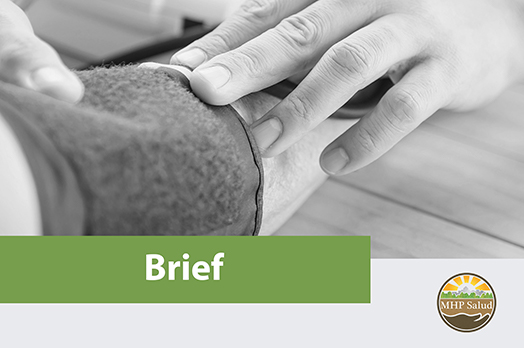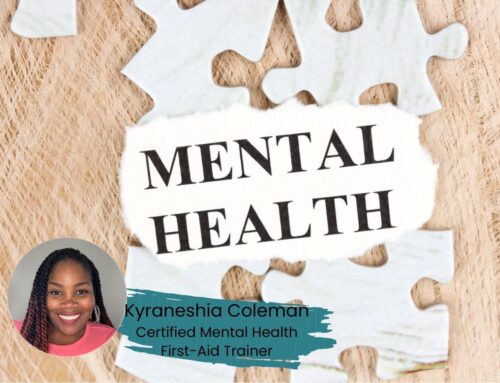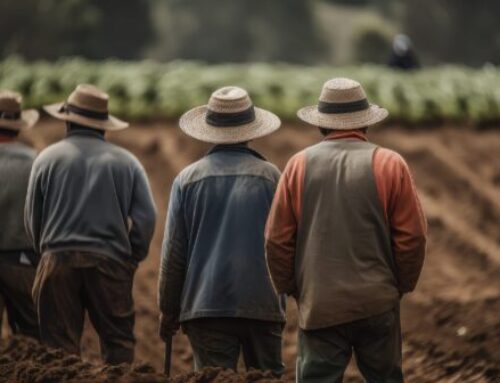Community Health Workers Programs Can Address Hypertension
April 2019
Hypertension is a medical condition defined as uncontrolled high blood pressure. Uncontrolled high blood pressure can lead to several serious health conditions, especially when left untreated. For example, it can damage blood vessels in the heart, which in turn increases the risk of heart attack and stroke.1 It is a major risk factor for chronic kidney disease (CKD) and other forms of heart disease,1 which is the current leading cause of death in the United States.8 According to the Centers for Disease Control and Prevention (CDC), in 2014 alone, hypertension was the primary or contributing cause of death for more than 1,100 individuals per day.2 Roughly 75 million (1 in every 3) American adults currently have high blood pressure.2 And for those who suffer from chronic diseases like type 1 and 2 diabetes, hypertension enhances the risk of heart attack or stroke (Hypertension occurs in approximately 30% of patients with type 1 and 50-80% of patients with type 2).9
Thankfully, there’s good news: while hypertension can have serious health consequences, it can also be detected with routine blood pressure tests, controlled with lifestyle changes and in some cases medication.4 Why, then, is it such a persistent problem?
About 1 of 5 U.S. adults with hypertension don’t know they have it.3 This is perhaps due to not visiting with their doctor regularly or not understanding their diagnosis. Those who are aware often struggle to manage their health properly. They have difficulty making the necessary lifestyle changes or taking their medication correctly.5 With doctors and other clinical staff already at capacity, what can organizations do to better address this problem?
Community Health Worker Health Interventions
Enter Community Health Workers (CHWs): frontline public health workers who act as trusted liaisons between individuals and health and social services.6 They improve the lives of their fellow community members by connecting them to health services, providing culturally appropriate health education and advocating on their behalf. CHWs also perform outreach and provide other related services.
Community Health Worker programs can lead to powerful improvements in the health of patients with hypertension. They can help people overcome the challenges they may face in managing their blood pressure. CHWs aide with:
- Connecting individuals to affordable health care programs and insurance.
- Providing individualized education and interventions on making healthier dietary choices, and the importance of daily exercise.
- Providing individualized education on the importance of taking medications and the risks of not doing so.
- Encouraging individuals to quit smoking and reduce alcohol intake.
- Stressing the importance of keeping up with doctor appointments and keeping up the individual’s condition 7
MHP Salud designs and implements Community Health Worker programs that help people navigate their struggles with hypertension and its effects. One such program, Vivir una Vida Plena, is dedicated to promoting healthy lifestyles among individuals at high risk for or diagnosed with the early stages of chronic diabetic kidney disease. Hypertension is present in more than 80% of patients with chronic kidney disease.10
Our Community Health Workers work with community members to find free services that help individuals at risk for CKD manage their condition. Those at risk are enrolled in the program and are connected to a screening that includes a urine analysis, monitoring of their Glomerular Filtration Rate (GFR) and A1C levels. CHWs also connect participants to a lab for bloodwork that consists of a comprehensive Metabolic Panel.

We’ve developed a resource to help other organizations create their own CHW programs! In our Community Health Workers, Hypertension and Heart Health Interventions resource, we explain how Community Health Worker-led intervention programs can positively impact patients who have hypertension. Also included is a comprehensive list of additional resources program managers and administrators can use to educate and train CHWs.
Want to download the Community Health Workers, Hypertension and Heart Health Interventions resource, for free? Be sure to register for our Resource Portfolio
This test checks the status of participants metabolism, the health of their kidneys and liver, levels of blood glucose and blood proteins and helps determine if follow up tests are needed to establish a diagnosis.11 The CHWs call participants when the results arrive, inform them if they qualify for education sessions, and based on the results, tell participants if they should seek medical attention immediately.
Our Community Health Workers also provide health education sessions that include suggestions, practical tips and, strategies to build confidence in living a healthier lifestyle. These classes have proven to be effective for participants. For example, after 12 weeks, the 2018 Vivir una Vida Plena participants showed significant increases in physical activity, fruit consumption, and vegetable consumption. They also showed a decrease in sugar-sweetened beverage, sodium and saturated fat consumption.
Along with a screening, lab work and educating participants on healthier lifestyle habits, our CHWs successfully connect those who did not have a primary care facility with organizations that provide free or low-cost primary care visits. This connection helps participants stay up-to-date on their condition and encourages them to return for a follow-up if needed. The presence of a CHW during this stage of the program has proved effective. For those that completed a follow-up visit, there were positive trends reported in their decreasing weight, total cholesterol, LDL cholesterol, and triglycerides. These outcomes demonstrate the importance Community Health Workers have in empowering their communities to take steps towards a healthier lifestyle and the impact that has on chronic diseases.
If your organization is interested in expanding a current program to address hypertension or needs more individualized support with starting a CHW-led program, be sure to peruse MHP Salud’s training and consulting services.
About MHP Salud


MHP Salud has over 35 years of experience implementing CHW programs and training organizations looking to start and/or strengthen their own CHW programs. For more information about MHP Salud, our services, and how we can help you, please email us at info@mhpsalud.org.
References
- Centers for Disease Control (July 2014) Effects of High Blood Pressure https://www.cdc.gov/bloodpressure/effects.htm
- Centers for Disease Control (June 2016) High Blood Pressure Fact Sheet https://www.cdc.gov/dhdsp/data_statistics/fact_sheets/fs_bloodpressure.htm
- Centers for Disease Control (November 2016) High Blood Pressure Facts https://www.cdc.gov/heartdisease/facts.htm
- National Heart, Lung, and Blood Institute. High Blood Pressure https://www.nhlbi.nih.gov/health-topics/high-blood-pressure
- Khatib, R. Schwalm, J. Yusuf, S. Haynes, R. McKee, M. Khan, M. Nieuwlaat, R. Patient and Healthcare Provider Barriers to Hypertension Awareness, Treatment and Follow Up: A Systematic Review and Meta-Analysis of Qualitative and Quantitative Studies. January 2014. https://www.ncbi.nlm.nih.gov/pmc/articles/PMC3893097/
- American Public Health Association. https://www.apha.org/apha-communities/member-sections/community-health-workers
- Centers for Disease Control. Community Health Workers and Million Hearts. https://www.cdc.gov/bloodpressure/docs/mh_commhealthworker_factsheet_english.pdf
- Centers for Disease Control. National Center for Health Statistics. https://www.cdc.gov/nchs/fastats/leading-causes-of-death.htm
- US National Library of Medicine National Institutes of Health. Diabetes and hypertension: pathogenesis, prevention and treatment. https://www.ncbi.nlm.nih.gov/pubmed/15702616
- US National Library of Medicine National Institutes of Health. Treatment of hypertension in chronic kidney disease. https://www.ncbi.nlm.nih.gov/pubmed/16298269
- Mediline Plus. Metabolic Panel https://medlineplus.gov/metabolicpanel.html






